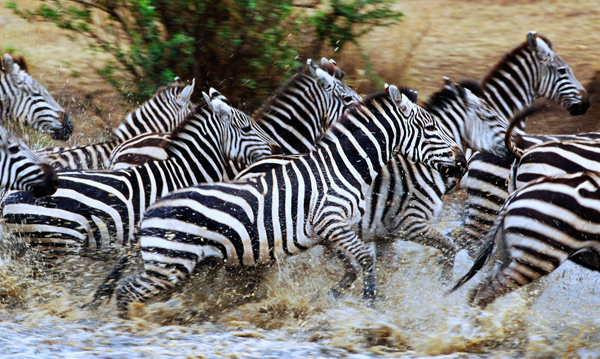The Great Migration
Going Home
Geese do it. Penguins do it. Bats, ladybugs, salmon, earthworms, cockatoo’s, rattlesnakes, manatee’s, humans… all travel great distances in large groups following a deep sense of inner knowing– their intuition.
Some 1.4 million wildebeest and 250,000 Burchell’s zebra make the 1,200-mile trek from Tanzania’s Serengeti to the Masai Mara in Kenya for food and water.
Millions of monarchs migrate up to 3,000 miles from the northeast to Mexico to survive the cold and lay eggs.
Humans migrate too.
Early on for climatic survival. And later for human rights, political, religious, social and economic freedom.
From the six million African-Americans who fled the rural Southern United States between 1910 and 1970 to the one hundred thousand Rwandese refugees who survived the genocide in the early 1960’s to the exodus of Syrian refugee today.
They knew not where they were going, only that they had to go.
This happens en masse for collective survival.
But it also happens on a profoundly personal soul level. And it is just as much about survival. Emotional, spiritual and physical. Not for all people. After all, like animals there are plenty of people, not driven by this migratory calling.
The calling is an instinctual primal pulling toward home.
Like a metaphorical dinner bell being rung at dusk that reminds you it’s time to come home.
For those people who hear it, there is a driving, compelling, relentless need to find home– to be aligned with a deep sense of inner purpose.
It feels hauntingly familiar and yet often frustratingly out of reach.
Intuition knows the way.
Animals follow this above all else. But, as Westernized humans, we have been educated out of this kind of intelligence except perhaps as a hunch, afterthought or back-up support.
Even for those of us who value and appreciate it more than common sense, our upbringing and cultural context make it hard to follow, difficult to connect.
It is elusive.
And because to live by it, goes severely against the grain of societal expectation, it is easy to ignore, at least for a while.
However, it never goes away. Last night, we went to see the new Jungle Book movie. Before it, we saw the preview for the new Nemo movie, called Finding Dory. The preview opens on a field trip to the stingray migration.
The teacher begins: Migration is about going home, which is where you’re from.
Nemo’s son Squirt asks: How do all the stingrays know where to go?
The teacher answers: Instinct. Something inside you that feels so familiar you have to listen.
My throat tightened. My eyes filled up. It is always there.
It’s just a matter of how well we choose to listen.





